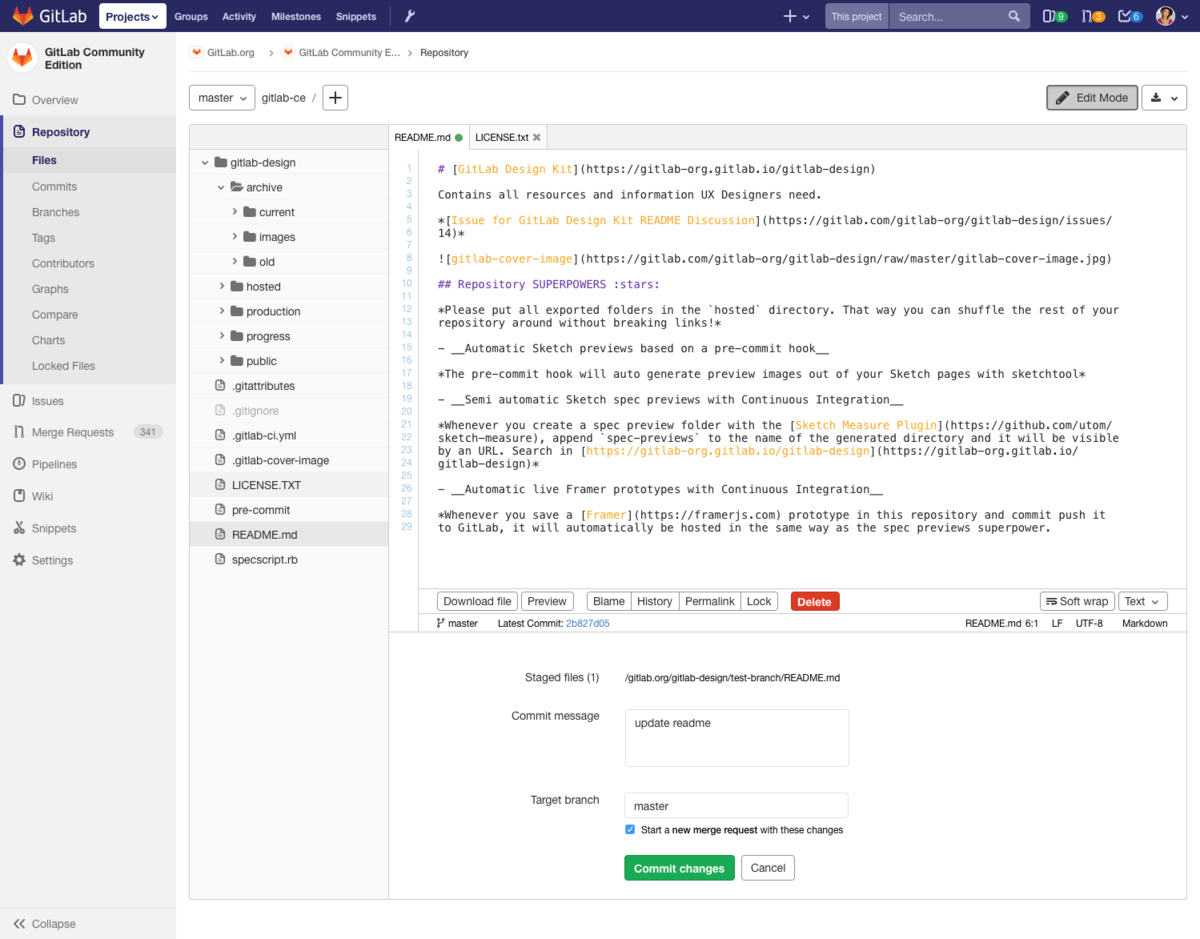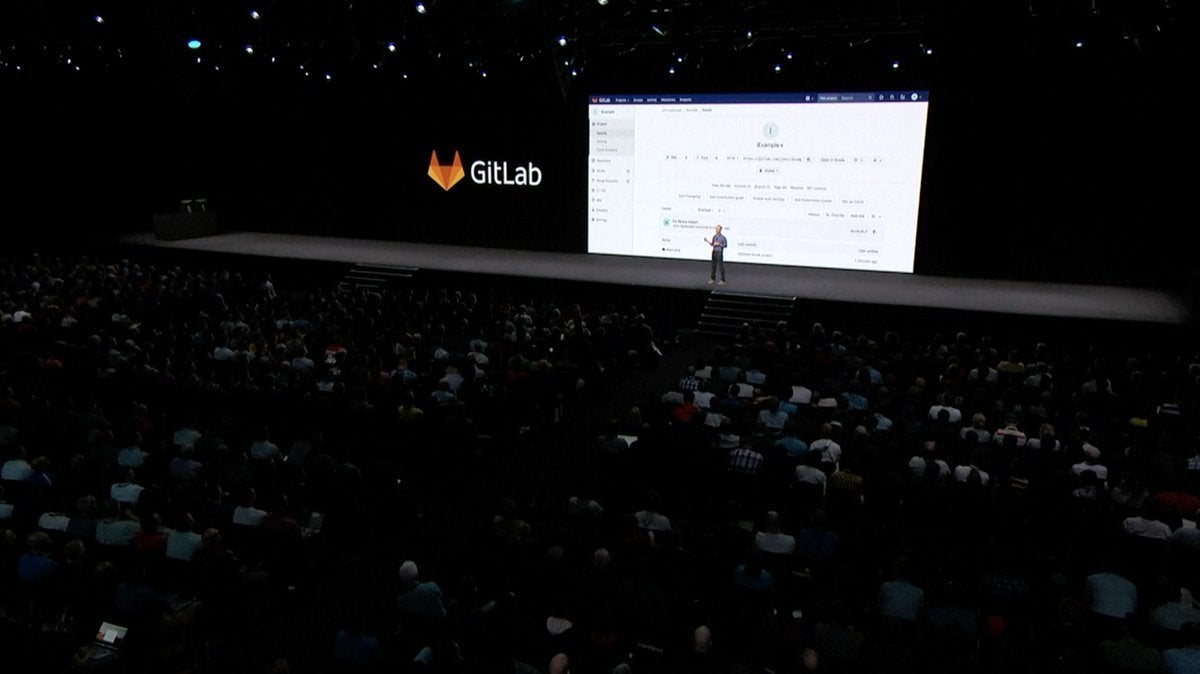No other details were shared in this tweet, but this image from the stage of WWDC says all it needs to.
In a post-Microsoft + GitHub world — it has been a crazy 24 hours for GitLab.
More than 2,000 people tweeted about #movingtogitlab. We imported over 100,000 repositories, and we’ve seen a 7x increase in orders. We went live on Bloomberg TV. And on top of that, Apple announced an Xcode integration with GitLab.
Here’s an interesting exchange between Emily Chang and Sid Sijbrandij on Bloomberg Technology:
Emily: I spoke with Satya Nadella earlier today, and he said “he promises to put developers first.” Do you not believe him, or do you think it’s not possible for a company with so many objectives to really put developers first?
Sid: I believe him. Microsoft has shown that it is the new Microsoft, and they’ve done great. The new CEO, Nat Friedman, shows he really understands developers. So I believe him when he says they are going to be good maintainers of GitHub.
Emily: So, then what’s so bad about GitHub?
Sid: There’s nothing bad about GitHub.
Emily: What’s so much better about GitLab?
Sid: It’s a fundamentally different product. It’s open core, so a lot of it is open source. You can host it yourself. But second and I think most importantly, it’s not just code hosting. With GitHub you host your code. GitLab is the entire DevOps lifecycle. So all the way from planning something to rolling it out, container registries, monitoring — all in a single product. That allows you to get the whole organization on the same page. And that’s why people are flocking to it.
They go on to talk about being a sustainable business, financials, etc.

